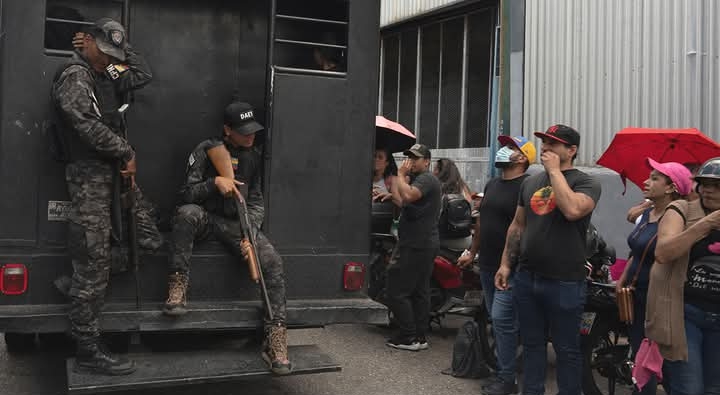By Adeyemi Adekunle
Venezuelan journalist Ana Carolina Guaita, who spent more than four months imprisoned on charges of terrorism, incitement to hatred, and obstruction of public roads, has been released, the country’s National Union of Press Workers announced on Saturday.
Guaita, a reporter for the independent outlet La Patilla, was arrested on August 2 following her coverage of post-election protests that erupted after the controversial reelection of President Nicolás Maduro in July.
The journalist was detained in La Guaira, a city north of Caracas, where she was held until her release. The charges against her stemmed from her reporting on the toppling of a statue of late President Hugo Chávez, a symbolic act during demonstrations rejecting Maduro’s claim to a third six-year term.
“Ana was imprisoned for more than four months for simply doing her job,” the press union said in a statement on social media. “Her arrest was another attempt to silence the press and suppress dissent.”
Guaita’s release coincided with the Venezuelan government’s announcement that 200 detainees had been freed, part of what authorities described as ongoing efforts to address political unrest. According to official figures, 733 people have been released in recent months, though the Foro Penal human rights group disputes this, claiming the number is significantly lower.
The protests that followed Maduro’s reelection were marked by violence, leaving 27 dead, over 200 injured, and more than 2,400 detained. Opposition leaders claimed widespread electoral fraud, with their data showing a landslide victory for their candidate. However, Maduro’s government dismissed these claims, labeling the protests as foreign-backed attempts to destabilize the country.
Guaita’s case has drawn international attention, highlighting the precarious state of press freedom in Venezuela. Media outlets critical of the government face increasing repression, and journalists are often targeted for their work. Guaita’s employer, *La Patilla*, is known for its critical stance toward the Maduro administration, making it a frequent target of government scrutiny.
Human rights organizations have condemned the government’s treatment of journalists and protesters. “The release of Guaita and others is a positive step, but it does not erase the systematic repression journalists face in Venezuela,” said a representative from Amnesty International.
The July 28 election, which Maduro claimed to have won, has been recognized by only a handful of countries, including Russia. Most of the international community, including the United States and the European Union, have rejected the results, citing a lack of transparency and fairness.
Guaita’s release has sparked cautious optimism among her colleagues and press freedom advocates, though many remain concerned about the broader crackdown on dissent. The National Union of Press Workers continues to call for the unconditional release of all journalists and political prisoners.
Amidst Venezuela political and economic turmoil, the plight of journalists like Guaita underscores the challenges facing independent reporting in a country where press freedom is under siege. Her release may provide a glimmer of hope, but the road to restoring journalistic freedoms remains fraught with challenges.




